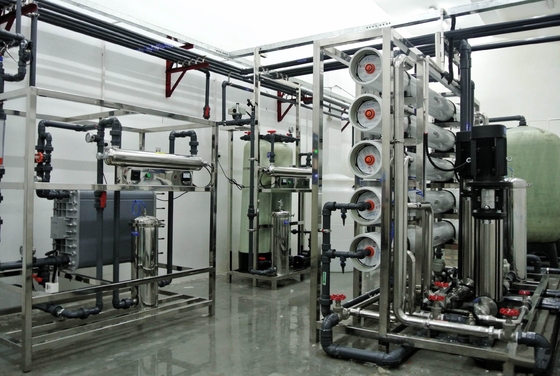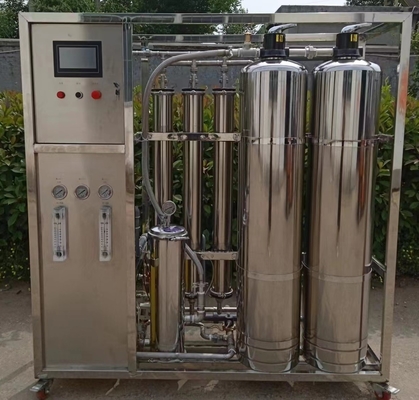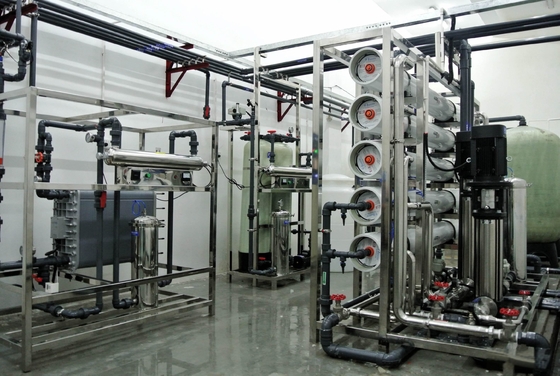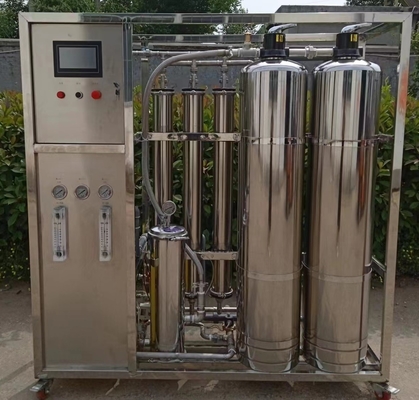-
Condensate Water Recovery Device
-
Reverse Osmosis Equipment
-
Fully Automatic Water Softener
-
Industrial Sand Filter
-
Water Supply Equipment
-
Chemical Dosing Device
-
Container Flipper
-
Container Loading and Unloading Machine
-
Truck Flipper
-
Electric Transfer Cart
-
Electronic Weighbridge
-
Mobile Loading Dock Ramp
-
Air Compressor Heat Recovery
-
Water Treatment Accessories
Hydrocarbon Free Reverse Osmosis Water Treatment Machine For Clean Water Systems

Contact me for free samples and coupons.
Whatsapp:0086 18588475571
Wechat: 0086 18588475571
Skype: sales10@aixton.com
If you have any concern, we provide 24-hour online help.
x| Features | High Efficiency, Energy-saving, Environmentally Friendly, Intelligent, And Versatile. | Origin | Taian, Shandong |
|---|---|---|---|
| Product Material | Composite Material | Brand | Tonglida |
| Product Information | RO Reverse Osmosis Water Treatment Equipment For Purified Water, Ultrapure Water, And Ultrafiltration | Application Fields | Electronics, Industrial, Pharmaceutical, Food, And Other Industries For The Preparation Of Purified Water And Ultrapure Water. |
| Highlight | hydrocarbon free reverse osmosis water treatment machine,clean reverse osmosis water treatment machine,clean advanced reverse osmosis water treatment system |
||
Product Description:
Reverse osmosis systems are typically composed of pre-treatment and RO main units. Depending on the user's material and water quality requirements, the RO membrane types can be customized. The RO membrane is made of high molecular materials through specific processes, which only allows water molecules to pass through, while rejecting solutes.
The process of reverse osmosis works by applying high pressure to the feedwater on one side of the semi-permeable membrane. If the pressure exceeds the osmotic pressure, purified water is created as water molecules from the feedwater cross the membrane to the other side. Dissolved and undissolved inorganic salts, heavy metal ions, organic substances, bacteria, colloids, and other substances are unable to pass through the semi-permeable membrane and are discharged with the concentrate.
The selection of RO membrane types is crucial in ensuring water quality meets the user's requirements. The RO membrane is a vital component in the production of purified water through reverse osmosis systems. The specialized membrane acts as a barrier against impurities and other unwanted substances; allowing pure water to pass through. Regular maintenance and replacement of the RO membrane are necessary to ensure efficient operation of the reverse osmosis system.
Investing in a reverse osmosis system for your water purification needs is a smart decision. With the ability to customize the RO membrane types, users can ensure their requirements are met accurately. The RO membrane is a reliable and effective method for purifying water, ensuring harmful impurities are removed from the water supply. Careful attention to regular maintenance and replacement of the RO membrane is crucial to the longevity and efficiency of the system.
Features:
High Efficiency
The product boasts high efficiency, meaning that it is built to deliver top-notch performance without wasting any resources. Whether it’s in terms of speed, accuracy, or productivity, you can always rely on this product to get the job done quickly and efficiently.
Energy-saving and Environmentally friendly
In addition to its high efficiency, the product is also designed to be energy-saving and environmentally friendly. By using less energy and producing fewer emissions, it helps to conserve our natural resources and reduce our carbon footprint. This makes it a socially responsible choice for environmentally conscious individuals and businesses alike.
Intelligent and Versatile
As an intelligent and versatile product, this solution offers advanced functionality and versatility to meet a wide range of needs. It is designed with smart technologies that allow it to adapt to different environments and applications, making it suitable for a variety of uses and purposes. Whether you need it for personal or professional use, you can always count on it to deliver exceptional results.
Technical Parameters:
The reverse osmosis membrane has a pore size of 0.0001 micrometers, much smaller than typical PP cotton filter cartridges (5 micrometers) and ultrafiltration membranes (0.01 micrometers). This means that the equipment is well-suited for effectively removing impurities, bacteria, and other substances from water. The pore size for bacteria and heavy metal ions is 0.001 micrometers, making it possible to purify water to a high degree.
The water production capacity of reverse osmosis equipment can vary from 1 to 100 tons, depending on specific needs. For household use, the minimum capacity is 7.8 liters per treatment, but equipment can be configured to produce 0.5 tons, 1 ton, 2 tons, 5 tons, 10 tons, 50 tons, 100 tons, or more as required. This flexibility makes the equipment suitable for a range of applications.
The fully automatic control valves of the reverse osmosis equipment can be set based on flow rate or time, and the filter media can be self-cleaned online without the need for manual monitoring. This makes the equipment very convenient, fast, and labor-saving for businesses and individuals who need purified water regularly.
The use of quartz sand, activated carbon, scale inhibitors, fine filtration, and five-stage reverse osmosis filtration can extend the lifespan of the equipment. This means that users can expect it to effectively purify water for a long time.
The reverse osmosis equipment can achieve a recovery rate of up to 75%, which means that a large percentage of the water treated can be safely reused or recycled. This helps to reduce waste and conserve resources.
Applications:
Purified water and ultrapure water are crucial resources for several industries, including electronics, industrial, pharmaceutical, and food. The following are some areas where the need for purified and ultrapure water is essential.
In the textile and chemical industries, purified water is used for the purification and preparation of process water/chemical circulating water, the manufacturing of chemical products, and other processes.
The food and beverage industry requires purified and ultrapure water for the preparation of drinking water, beverages, beer, liquor, health products, and other products.
In industrial production, purified water is used for the concentration and recovery of useful substances.
In the power industry, purified water is used for the pretreatment of high-pressure boiler feedwater, boiler feedwater for thermal power boilers, and low-pressure boiler power systems in plants and mines.
Desalination and desalting of brackish water and seawater are essential for industries that require pure water.
The primary desalination equipment used for high-purity water production is crucial for industries that require pure water.
Enterprises and Institutions
Larger establishments such as communities, real estate properties, schools, factories, hospitals, tea houses, hotels, beauty salons, and canteens require purified water for daily use.
Water treatment systems can also be used for the production of bottled water, mineral water, and other packaged water products.
Purified water is needed in the electronics industry to obtain rinsing water for integrated circuits, silicon wafers, display tubes, and other electronic components.
Large-volume infusion, injections, tablets, biochemical products, equipment cleaning, and other processes in the pharmaceutical industry require purified water.
In locations such as islands, ships, offshore drilling platforms, and brackish water areas, desalination is essential to obtain pure water.
Other processes that require ultrapure water include automotive, household appliance painting, coated glass, cosmetics, fine chemicals, and more.






